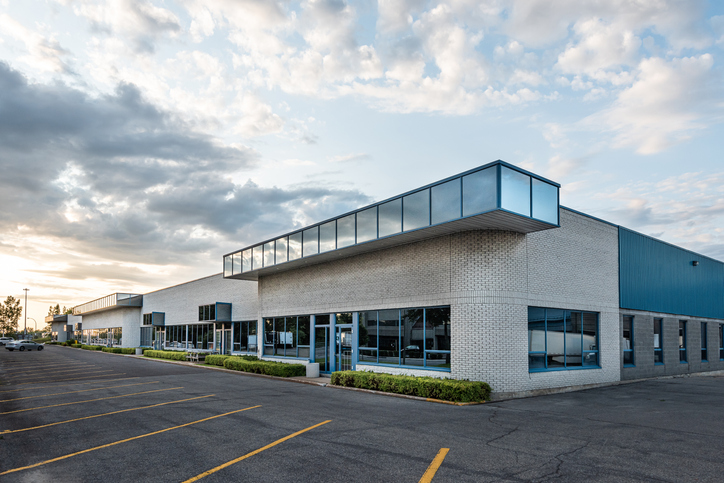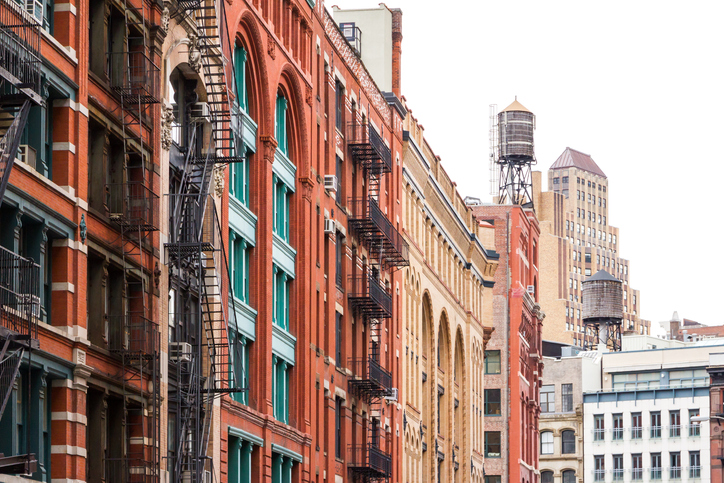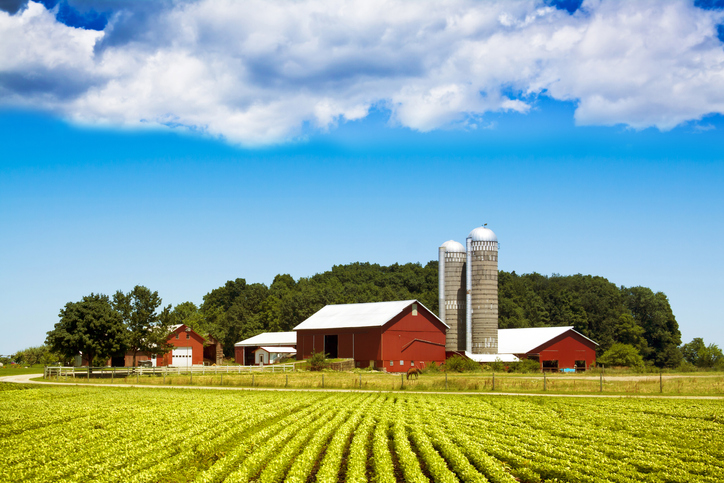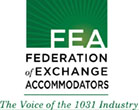
Encouraging capital investment for the highest and best use of real estate
FLOORING STORE IN AN INDUSTRIAL AREA OF A LARGE CITY
A flooring store located for decades in an industrial area in a large city found its location was no longer positioned to best serve its growing suburban customer base. Additionally, the store’s urban industrial area was undergoing revitalization, which increased demand for affordable and low-income housing in the neighborhood. Using a like-kind exchange, the store sold its building in the city and purchased two replacement properties in suburban areas. The exchange allowed the store to move closer to its customers while also freeing up property in the urban neighborhood for much-needed affordable housing.

FAMILY-OWNED GARDEN CENTER IN A SMALL, SUBURBAN DOWNTOWN AREA
A family-owned garden center located in a small, suburban downtown area had limited space and minimal parking. A drugstore chain approached them with an offer for their location and built a much-needed drug store in the neighborhood. Using a like-kind exchange, the garden-center owners acquired a property that allowed the business to relocate to an area with significantly more space and plenty of parking. The exchange allowed the garden center to better serve customers with an expanded product line and more convenient parking, while still remaining within the community. The new drug store created jobs and filled a retail need in the neighborhood. It also contributes significantly more in local and state taxes.
LARGE VACANT OFFICE COMPLEX IN A DOWNTOWN CITY CENTER
During the previous recession, a large office tower in a city center owned by a failed financial institution unexpectedly came to market. As part of a like-kind exchange, a life insurer acquired the building, moved an operating subsidiary into the space and turned a dark office tower that would have been an ongoing blight in the city center into an economically vibrant and profitable space. Today, like-kind exchanges can be used as a similar tool when repurposing large retail and other commercial structures that may become underused or vacant as a result of altered post-pandemic business models.
YMCA ON THE OUTSKIRTS OF A METROPOLITAN AREA
As part of a like-kind exchange, a farmer sold a parcel of land located on the outskirts of a metropolitan area to a local YMCA to construct a new building. The transaction created new jobs at the YMCA, improved surrounding roads and increased recreational and fitness opportunities for the community. ln return, the farmer acquired a single family rental property, which can be used as a tool for retirement savings.

Helping farmers increase operational efficiencies and plan for retirement
COMBINING ACRES TO INCREASE OPERATIONAL EFFICIENCIES
A farmer owned two 80 acre tracts of farmland located 20 miles away from his home operation. The farmer’s neighbor listed for sale a 160 acre, higher quality tract of land adjoining the farmer’s home operation. Through a like-kind exchange, the farmer divested the two distant 80 acre parcels, acquired the neighboring 160 acres and combined his land holdings into a larger farm of 360 contiguous acres. The like-kind exchange allowed for reallocation of capital to higher quality land and resulted in greater operational efficiencies.


KEEPING THE FARM/RANCH IN THE FAMILY – SIBLING ACQUISITIONS
Five siblings inherited two 600 acre tracts of ranchland (Tract A and Tract B) when their parents passed away. Two of the siblings raised cattle on the land while three lived in other parts of the country. The siblings decided to sell Tract A at auction with the winning bidder agreeing to lease Tract A to the rancher siblings. The three non-ranching siblings agreed to sell their interests in Tract B, the “home ranch” to the rancher siblings to keep it in the family. One of the non-ranching siblings cashed out her interest and the other two siblings exchanged into income producing properties in their cities of residence. The like-kind exchange allowed the two rancher siblings to keep their ranch in the family. The exchange also allowed the non-ranching siblings to sell without fear of being “tax locked” and to reinvest in assets where they live and that meet their investment goals.
KEEPING THE FARM/RANCH IN THE FAMILY — THE BEGINNING FARMER
A 65-year-old farmer owned an 80-acre farm that had been in the family for decades. The farmer’s son was starting his operation, and he desired to acquire the ancestral farm. The farmer sold the family farm to his son and was able to exchange into a larger, higher quality parcel located near another separate tract of farmland. The like-kind exchange allowed the farmer to help his son start his operation while passing the family farm on to the next generation without fear of severe tax ramifications.
PROVIDING A FLEXIBLE RETIREMENT PLANNING TOOL FOR FARMERS
A farm couple owned 1,000 acres of farmland and operated a 150 head dairy operation. The couple had three adult children all living in the capitol city of their state and none of them desired to return to the operation. As they neared retirement age, the couple utilized a like-kind exchange to sell 100 acres of their farm and acquire a condominium that they would use as rental income in the capitol city. Upon retiring five years later, the couple was permitted under tax law to convert the previously income-producing property into their residence so they could live closer to their children. The couple retained the remaining 900 acres of farmland and received an ongoing retirement income stream by renting the acres to a tenant farmer. The like-kind exchange allowed the couple to exchange into a non-farm asset in retirement without reducing the value of their nest egg earned through their lifetime of hard work.
